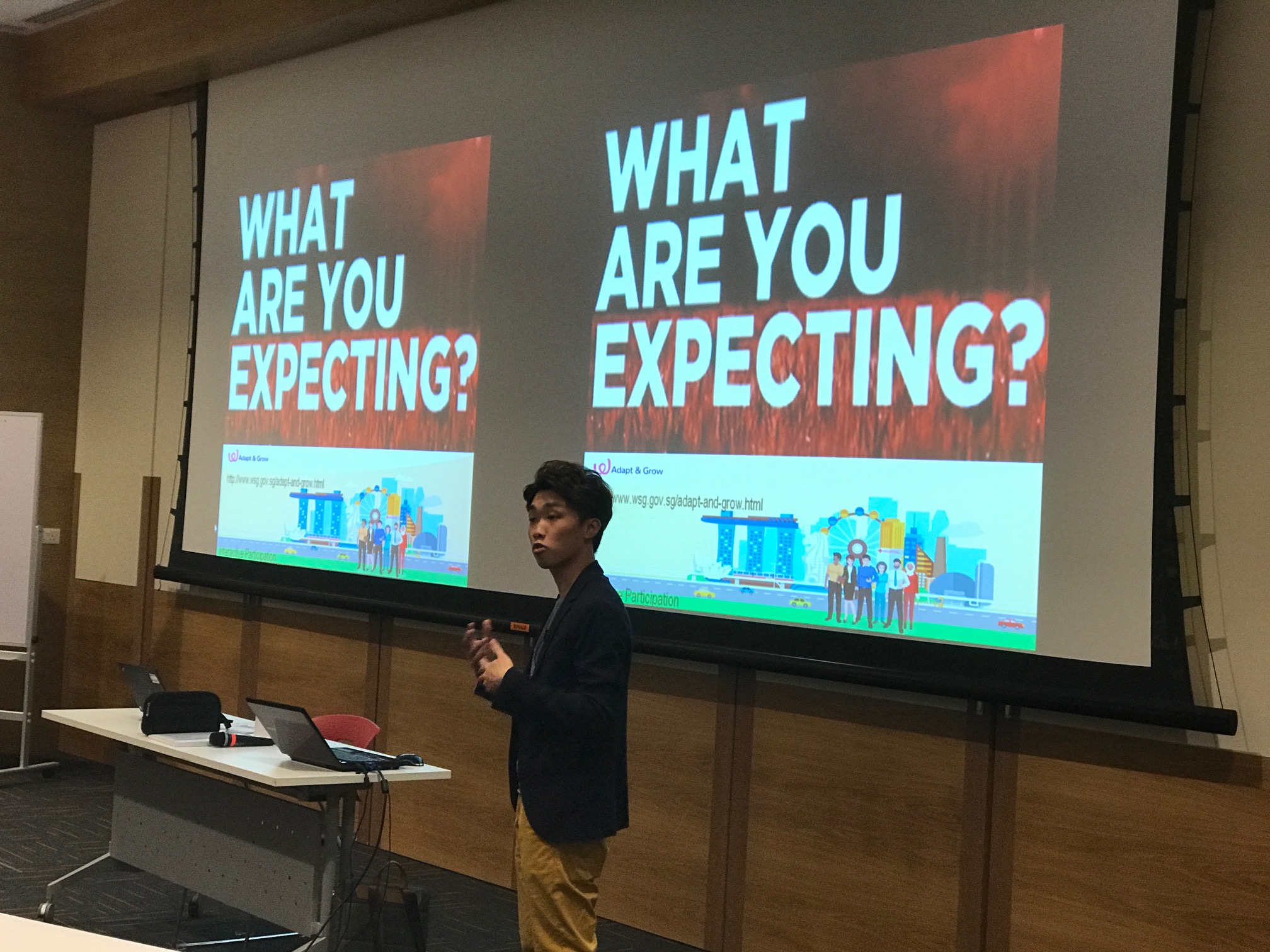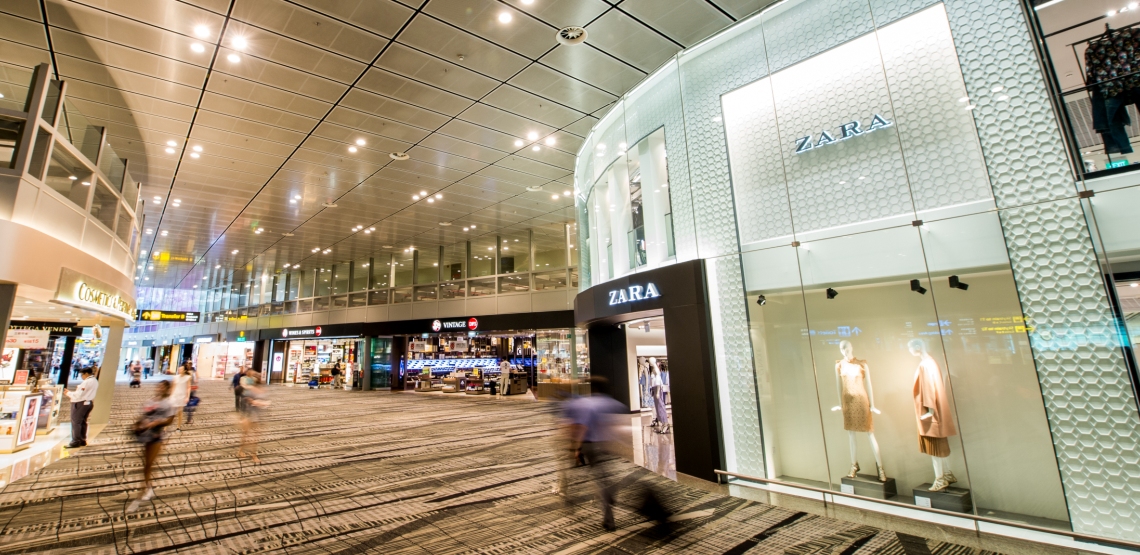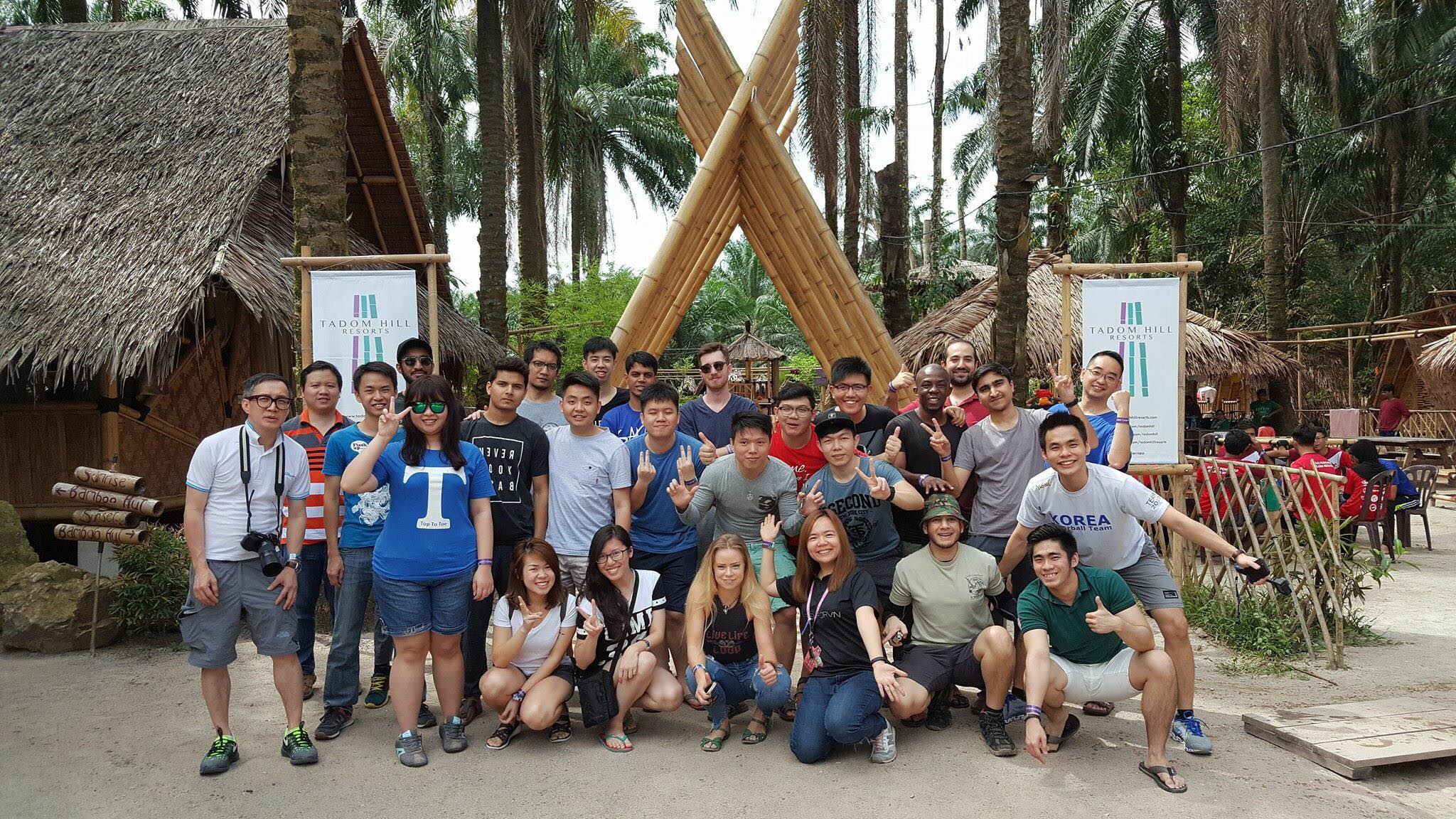“HR is not about policies or transactions” – Sam Neo, founder of People Mentality Inc.
Contributors are not employed, compensated or governed by TD, opinions and statements are from the contributor directly
 Sam Neo is the founder of People Mentality Incorporated, a Singapore-based HR consultancy, focussing on employment culture. In advance of his speech at the HR Executive Summit, I spoke to him about creating the ‘picture perfect employer of choice for millennials’ for this week’s podcast:
Sam Neo is the founder of People Mentality Incorporated, a Singapore-based HR consultancy, focussing on employment culture. In advance of his speech at the HR Executive Summit, I spoke to him about creating the ‘picture perfect employer of choice for millennials’ for this week’s podcast:
The below is an abridged version of the podcast. Neo speaks:
Background
I’m 30 years old and I started my career seven years ago when I received a scholarship from the Ministry of Manpower. I was there for three years involved in business partner and employee engagement roles, plus corporate social responsibility and learning development.
I was headhunted by Changi airport and joined as a business partner. The airport is a very people-centric organisation; we talk internally enabling people and empowering them. It’s not just about driving results; it’s about thinking about people – that will then drive your results.

Changi is of course results-driven – it always wants to be the number one airport – but we don’t want to rest on our laurels. We wanted to take time to look at our employees and see how they’re doing and listen to their voices and learn how we can do better year after year. We don’t just want to be the top airport we want to be the top employer.
Changi really shaped me as an HR professional. It looks beyond just transactions: it’s not about processing payroll or managing policies. With the right mindset from the management you can make a huge difference. HR is often seen as a second-tier function because it focuses too much on processes, too much on transactions, but if we can put more effort into enabling people and making a difference in their lives, I think you can really impact the business.
After six years of corporate life I decided to relook at things. When I was 29 – millennials call it the quarter life crisis – I was at a point where even though I was very comfortable and stable in a well-paid job in a good company, I thought, ‘Is this really what I want to do long term?’
“If I retired right now, what would I be known for?”
I love the profession but if I remained in a corporate setting I wondered if I would be able to fulfill what I believe in and be able to impact more lives. I thought, ‘If I retired right now, what would I be known for? Would it be a millionaire HR officer or would it be a change maker in the profession?’. I chose the latter.
I reached out to different mentors and communities for clarity. I wanted to create a movement and a voice for the profession, and in particular for Asia. I think we look towards the west too much – where are there are good practices for sure, but I believe we have good practices here as well.
Regional nuances in HR
In Asia, we’re not that articulate and we don’t voice ourselves well; it’s a pity. If we can bring the best of the west and the best of Asia it will be a great exchange and we’ll grow the profession globally. For global MNCs, it’s the case that the global headquarters – wherever it is in the world – will just cascade down information and the regional officers just have to follow.
 We’re asking what has be kept consistent and what could be customised because we are creating different employer experiences in different countries.
We’re asking what has be kept consistent and what could be customised because we are creating different employer experiences in different countries.
You will look at the core message – for example, caring about employees. In China it might be about ensuring time for the family but in Singapore it might be about flexible hours.
“A lot of HR policies are top-down and don’t have regional ownership”
The theme is the same across global units but for different countries you have to tailor the message and get the local units to take ownership of it. A lot of HR policies are always top-down and don’t have regional ownership. It’s just me taking instructions even though I don’t really believe in it.
In Singapore study leave is important as Singaporeans love certifications. This means companies can let employees improve themselves – it’s certainly a positive for the employer experience. It’s always about country-sensitive.
Making the break
When starting a business, you always think, ‘Is this sustainable? Is it a dream that will only last six months or is it something that can become a business while you live the dream?’. Fortunately, I work for companies that paid me well and I had some savings so I thought I would go for it.
My first client was a company called Bread Talk and I did a benefit study with them. We looked at how we can better attract engage and retain different employees; we wanted to know what made them tick.
Benefits are not just about spending top dollars but what gives high perceived value for the employees, for a relatively low-cost to the company. For one of my F&B clients, one employee said that ‘appreciation isn’t about movie night or dinners, it’s just about my boss telling me that I did a good job – and knowing who I am’.
“At a certain point the money doesn’t make you tick anymore”
It’s important to understand the drivers for different employees and then tailor their needs to create the right experience for them. I would say more money is just a surface requirement – of course all of us want to be paid more! However, if you think of the law of diminishing returns, at a certain point the money doesn’t make you tick anymore.
If somebody says I want more money we normally did a little bit deeper to find out what they want the money for. What’s the core value that’s driving you? Is it for looking after the family, or chasing a dream, or for travel?
People Mentality
 We focus on three key pillars. We are an HR and branding consultancy firm for small to medium sized companies, focusing on the millennial angle – there is a conception that millennials are a tough bunch to manage and we try to bridge the gap.
We focus on three key pillars. We are an HR and branding consultancy firm for small to medium sized companies, focusing on the millennial angle – there is a conception that millennials are a tough bunch to manage and we try to bridge the gap.
We help companies attract the right talent and create structure and programmes to take the company to the next level – through their people. We also offer training facilities for bigger companies. We also offer content development: I have my own YouTube channel called PM TV; I write a lot of blogs and I’m very active on LinkedIn.
I get a lot of questions from people asking how can they join the profession. For me, it’s a good step towards my vision of taking HR to the next level and inspiring the next generation of people.
Travel and HR
Travel is about experience and when we do HR work, experience counts as well. It’s not just about transactions. How do you make sure that employees feel that this is the right place, then translate that positive experience to the clients?
There are common traits for millennials because of our value system and because of how we grew up. There are a lot of stereotypes, such as being impatient and wanting instant gratification, plus being entitled and self-absorbed.
There are underlying core drivers for this. For instance, we are impatient because we want to retire earlier: the average target age is about 60 years old. However while millennials want to retire early they want to learn a lot more. So a shorter career but wanting to do more leads to the impression of being impatient. That’s why they are always job-hopping: I need to find a new project when things don’t work out in the first few months.
We are wanting to learn why they appear to have that stereotype. A key theme of my talk at the HR Summit theme is to debunk these stereotypes, because before we talk about engaging we need to understand the target audience and about branding that is powerful and unique to the company.
“If people believe in what you stand for… you get company ambassadors”
Branding in its simplest term is what people think about you. What do you stand for? The best way to communicate this is through your company stories. By telling the right authentic stories you attract the right people from outside. Internally, if people believe in what you stand for, they become more engaged and you get company ambassadors rather than disgruntled staff. If you have people advocating you that adds to your credibility.
What to offer millennials
At this point in time, most millennials are in entry to mid-management level and are still finding their feet. They are looking how to grow their career and what they actually want. Having mentors helps with clarity, and managers who are equipped to have conversations about career makes a difference. The employee can work out what they want and the company can offer something useful.

To appeal to millennials, organisations should offer coaching and nurturing managers and a mentoring programme, and that means reverse mentoring as well, where millennials do not just learn but they can impart some knowledge two older colleagues as well and feel valued.
There are different roles in a company: as a CEO your job is to drive P&L of the organisation. In sales you need to drive sales; in marketing you need to brand the company, but the primary focus is not on the people themselves.
If you can provide platforms to empower people and to help managers, who are busy with day to day work, be better equipped to take care of their employees; for example being better acquainted with certain questions and how to approach your employees.
It’s about people mentality – not following a process but paying attention and acting based on your observations and interactions with your staff.


Comments are closed.